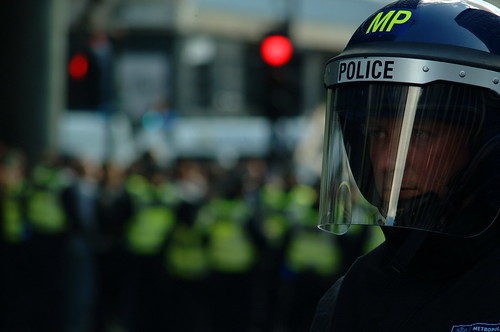 Image by Tbass Effendi
Image by Tbass EffendiClimate change conferences didn't end in Copenhagen, oh no! The filibustering roadshow continues in November in Cancún for the CoP16 conference and already the battle lines are being drawn between activists and organisers.
Klimaforum, the alternative forum on combating climate change, just released an email condemning the decision to host the summit in Cancún, warning that it's a deliberate attempt to exclude civil society groups.
"The fact has not yet officially announced but already known to many, that headquarters site, the Moon Palace Hotel, will be removed from the site (the Cancún Messe) in where they want to lock up the national and international groups they have much to contribute on Climate Change, shows so loud and clear that anyone not accredited by groups government will not be able to access the sites where negotiations would be plenary."
It's hard to make sense of what this means (it was translated from Spanish*) but the Cancún Messe is a convention centre, presumably where the conference will be hosted. What the Moon Palace Hotel refers to I have no idea, but at a guess they suggest that civil society groups will be kept separate from government officials for the duration of the event.
While evidence is lacking to suggest an unabashed segregation policy is the order of the day for CoP16, we needn't forget that the conference organisers have previous on this, having kicked out many NGOs for the final few days of the Copenhagen summit in December.
Klimaforum also lambasted in no uncertain terms the choice of Cancún with regards to its reputation for sustainability and social justice:
"The city of Cancún, a city with a single economic infrastructure with a society oppressed by the working conditions set by large transnational tourism companies, lacerated by the drug addiction, by the continuing occurrence of pederasty, with a deterioration their growing natural and other resources away from all sustainability schemes, has been chosen by the administration of Felipe Calderón Hinojosa as the venue for this important conference with the desire to eliminate any possible participation of groups civil society."
Maybe it's to provide a nice cosy base for government delegates to wallow in luxury at the expense of others while they thrash out yet another lax agreement? Who knows, but we'll be keeping an eye on the progression of arrangements for CoP16 to see what they have in store for those who care to dissent from authority's opinion on the climate. Just as soon as they make a website, that is...
__________________________________________________
*the original Spanish, if anybody can provide a more accurate translation:
"El hecho aún no anunciado oficialmente pero ya de muchos conocido, de que el sitio sede, el Hotel Moon Palace, estará alejado del sitio (el Cancún Messe) en donde pretenden recluir a los grupos nacionales e internacionales que tienen mucho que aportar sobre Cambio Climático, deja ver de manera clara y contundente que cualquier persona no acreditada por los grupos gubernamentales, no tendrá la posibilidad de acceso a los recintos donde habrían de darse las negociaciones plenarias."



